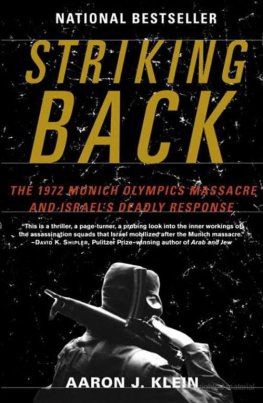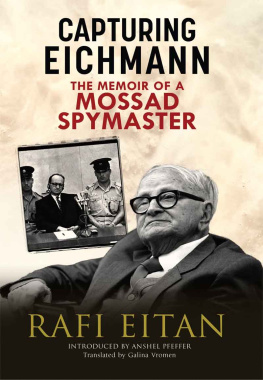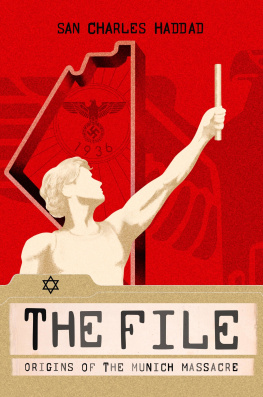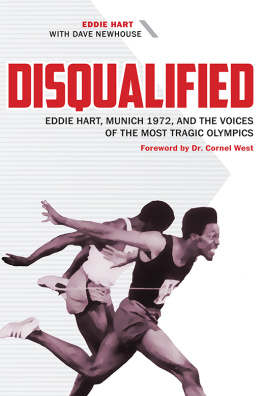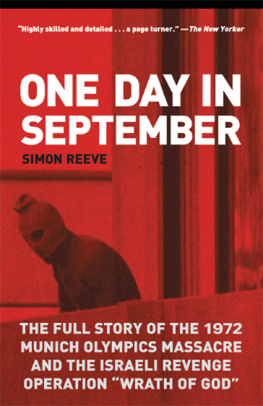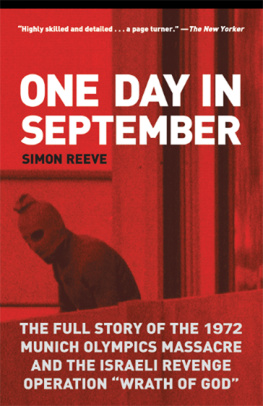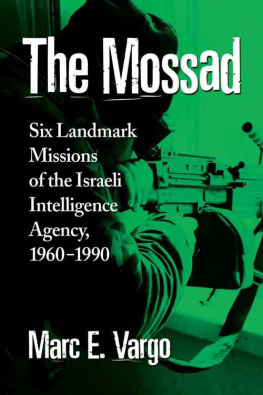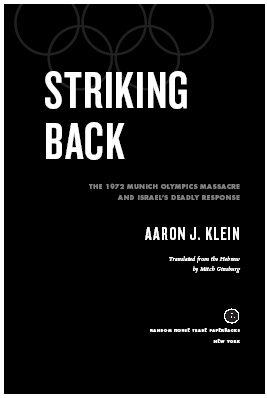
CONTENTS
In memory of my late father,
Alexander S. Y. Klein,
who taught me the value of humility
and the meaning of integrity
From the blood-drenched history of the Jewish nation, we learn that violence which begins with the murder of Jews, ends with the spread of violence and danger to all people, in all nations. We have no choice but to strike at terrorist organizations wherever we can reach them. That is our obligation to ourselves and to peace.
ISRAELI PRIME MINISTER GOLDA MEIR, 1972
TWENTY YEARS LATER
PARIS, LE MRIDIEN MONTPARNASSE HOTEL
MONDAY, JUNE 8, 1992, 1545H
The white Jeep Renegade hurtled down A-22 on its way to Paris. The driver was alone in the vehicle. He stopped twice, to buy food from a vending machine and gas from a pump. Five hours later, his surveillance tail almost lost him in the swirling rush-hour traffic of a Paris afternoon. On Rue du Commandant Mouchotte the trackers watched the new Renegade with the German plates, B-585X, make a sudden right turn. The driver of the surveillance car floored the accelerator and caught a glimpse of the Jeep as it dropped into the shadows of an underground parking garage. A quick look at the building explained the unexpected move: the garage belonged to the Le Mridien Montparnasse Hotel, an old, quality establishment in the heart of the upscale Montparnasse district, with over nine hundred rooms and suites, and a reputation for discretion. The visitor took the elevator to reception on the first floor. He registered under a pseudonym, paid cash, and went straight up to Room 2541 with a small suitcase in his hand.
The hotel guest was Atef Bseiso, a round-faced, elegantly dressed forty-four-year-old Palestinian who had been living in Tunis for the last ten years. He was the Palestine Liberation Organizationthe PLOliaison officer, working with, among others, the French internal security service, the Direction de la Surveillance du Territoire (DST). He was considered a rising star in his organization. His good relations with European intelligence agencies were, in large part, a product of his personal charm and charisma.
Bseiso was drained from the drivehe had covered the six-hundred-mile journey in nine hours flat. Despite his fatigue and the alluring pull of the rooms king-size bed, he went to the phone. Bseiso did not want to pass his only night in Paris with a remote control in his hand. He took out an address book and dialed the number of a PLO bodyguard. In Tunis, Bseiso felt safe; in Europe, he feared the Israelis. He had a list of names and numbers of men, frequently unarmed, who would accompany senior PLO officials in Europe to give them a sense of security. He told the man hed be going out to dinner. The bodyguard offered to pick Bseiso up at the hotel. Ive driven enough for today, Bseiso said. Lets say nine at the entrance to the hotel. A tout lheure. He showered and got dressed.
Shabtai Shavit, the head of Israels Institute for Intelligence and Special Operations, the Mossad, received a brief message in the operations war room, located in a safe house in the 11th Arrondissement: Hes in the Mridien Montparnasse. Were getting ready. Shavit leaned back in his chair. The operation was in high gear. Shavit, in his early fifties, had run the Mossad for the past three years, and was well acquainted with undercover operations. He had served for six years as commander of the Mossads Caesarea unit, which was charged with special operations and with running undercover Mossad combatants in enemy territory. He was in Paris on a borrowed identity: a different name was on the passport in the pocket of his blazer. None of his peers in the French secret service, or any other branch of the French intelligence services, knew he was in the country. His gut told him the mission would go well. He had complete confidence in the professionalism of Caesareas combatants.
Ilan C, Caesareas intelligence collection officer, placed the thirty-by-forty-centimeter pictures of the facade of the Mridien Montparnasse Hotel on a table in another room in the Mossad safe house. The new pictures had been shot from a variety of angles and included the streets surrounding the hotel. The surveillance team had taken them as soon as Bseiso checked in. The operational plans, drawn up in advance by Caesarea officers, took a number of hotels into consideration, primarily the Mridien Etoile, an elegant hotel situated a few steps from the Champs-Elysesbut not the Mridien Montparnasse. Bseisos unexpected choice forced them to revise their plans accordingly. The work was done quickly and efficiently. In less than an hour a new plan was brought before Shavit. Time was tight, and Shavit, never garrulous under even the most relaxed circumstances, kept it brief. He asked Caesareas commander and the head of the assassination squad a few questions about the operation. He honed a few key points, and then, satisfied, approved the mission.
The surveillance team had followed Bseiso for three days. They tracked him from the moment he arrived in Berlin; his meetings with German intelligence officers of the Bundesamt fr Verfassungsschutz (BfV); the purchase of the Jeep; his sprint to Paris. A half-dozen combatants, two cars, and two motorcycles comprised the surveillance team. Throughout, none of the operations planners at Caesarea had any idea where Bseiso would stay. Would he choose the apartment of a friend, a flat set up by the DST, or a plush hotel room, courtesy of the kingly budget of Fatah, the largest faction of the PLO? Now they knew where they had to act. The operation needed to go into full swing immediately, as Bseiso, a notoriously reluctant traveler, might well spend only one night in Paris. Perhaps the following day, after meeting a colleague from the DST, he would return home, and the opportunity that had presented itself would be gone, possibly forever. Intelligence reports showed that Bseiso, whose job demanded frequent travel, tried to stay in Tunis as much as possible. When he did leave, he flew, a mode of travel not so susceptible to Israeli attack. Planes go directly from point A to point B. The traveler is never alone. People in cars meander, stop for gas, and spend the night at hotels. Bseiso, it turned out, was in fact planning to leave the following evening. He would drive to Marseilles, put the Jeep on a ferry to Tunis, and surprise his wife, Dima, and their three children with the new car.
The Israelis waited in ambush outside the hotel. They assumed Bseiso would go out for dinner. When he returned, tired and contented, they would act. The late hours of the night, when the streets are quiet and empty, were always best for covert operations. The final decision would be in the hands of the two assassins, Tom and Frank. The point man, Tom, would pull the trigger. Up until the last instant, he would have the authority to call off the operation: he would raise his weapon only when certain that his team would emerge unscathed.
Atef Bseiso was a target because of the role he played in the slaughter of eleven Israeli Olympians in Munich, in 1972, almost twenty years prior. Shabtai Shavit wanted him to pay the price for participating in the killings. Prime Minister Yitzhak Shamir authorized the mission and gave it his blessing. The state of Israel was on the verge of closing its case against another one of the bastards, as they were known in the Mossad, who took part in the Munich Massacre.
Bseiso did go out to dinner. The Caesarea surveillance team shadowed him, undetected, the whole time. They checked that he wasnt being guarded by his DST hosts. Bseiso, his bodyguard, and an unidentified Lebanese woman spent a pleasant night at a Hippopotamus Grill chain restaurant. It was after midnight when Bseiso picked up the tab and went back to the Jeep. He sat in the back, his bodyguard drove, and his friend sat in the front seat. They had a very loud, animated conversation in Arabic. A short drive brought them to the entrance of the Mridien Montparnasse. The Rue du Commandant Mouchotte was quiet; few cars passed by.
Next page

